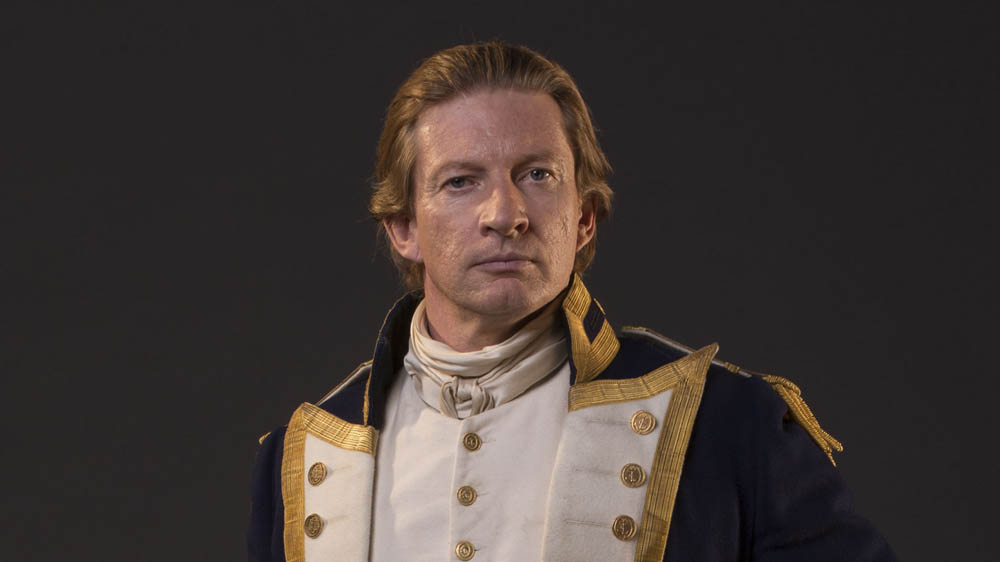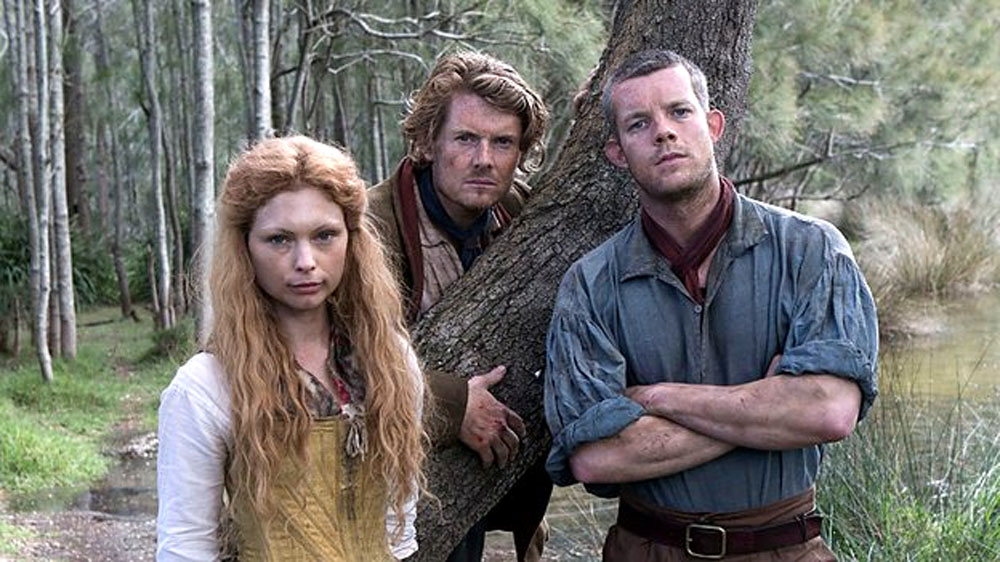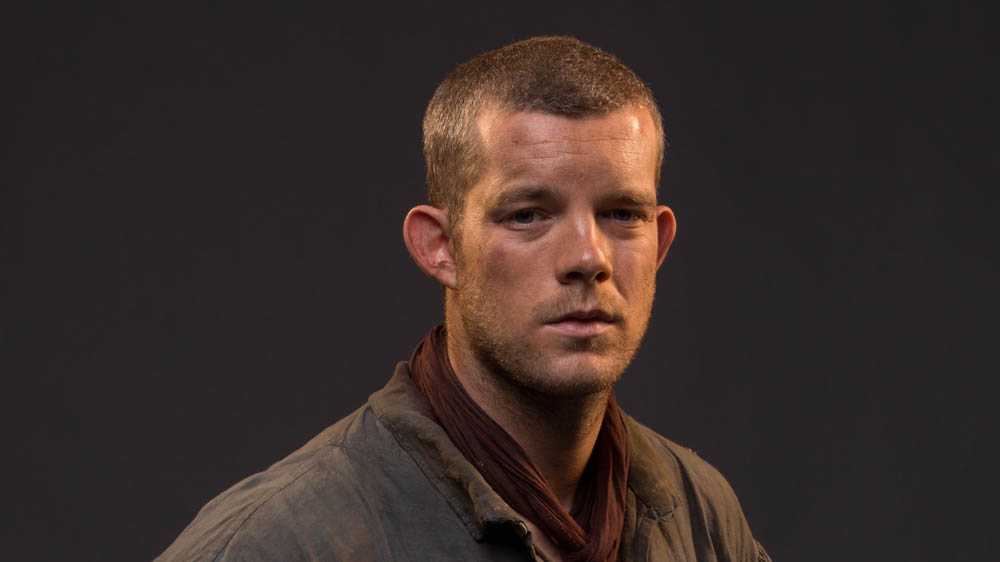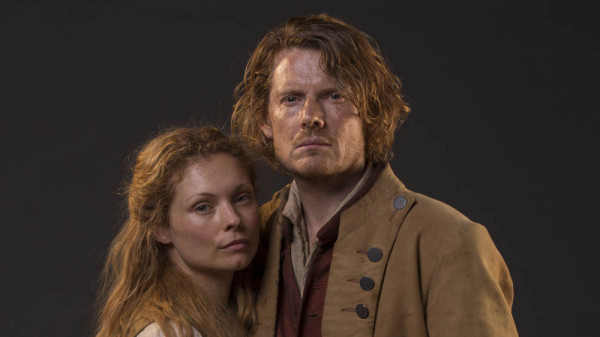The latest episode of Jimmy McGovern’s Banished once again raised some interesting issues, but again failed to capitalise on them by allowing any drama and tension mustered to dissipate almost immediately.
Part of the problem is that, as Freeman discovered in this episode, the colony camp is a small canvas on which to paint. In terms of locations, the show is as imprisoned as the inhabitants of the camp. As prison dramas know, it is possible to extract drama from the claustrophobia and the intimacy of the relationships, yet so far McGovern hasn’t quite hit the sweet spot in this regard.
There has been plenty of human drama, but as of yet no real conflict between the convicts or a sense of an external threat. At this stage the show should be hitting its stride – instead Banished is still fumbling around trying to tie its shoelaces.
The show itself might not be coming together but there were still some moments of note in this week’s instalment. Major Ross was yet again thinking with his loins, denouncing Catherine McVitie for attempting suicide.
‘How dare you prefer death to being with me,’ he upbraids her in front of his fellow officers, demonstrating why he chose the army over psychiatry. After the vicar threatens him with ex-communication from the church for forcing himself on Catherine, he has a change of heart, but not before complaining that the camp’s spiritual leader is running a monopoly.

Governor Phillip seems happy with this arrangement but the reverend’s power over the major in this scene feels unrealistic and unconvincing, as does Ross’s swift change of heart.
Offering the building services of his soldiers (‘my soldiers don’t work’ but who then is watching the convicts) in return for the Reverend’s blessing of his newly chaste relationship feels contrived if not a little curious. But at least it isn’t tedious unlike the interminable anecdote he relates as a way of explaining his callousness.
Elsewhere Governor Phillip frets that the camp suspects he is carrying on an affair with his housekeeper. The idea clearly appeals to him but his stiff upper lip is inevitably getting in the way.
The scenes between Anne Meredith and the Reverend’s wife Mary feel odd at first viewing. Meredith reveals that the Reverend warned her not to interact with her but later on Mary decides to explore her medium talents and asks her to contact her children. Given that most of the children seem to have died in early infancy, one presumes that she didn’t get much out of them other than a bit of mewling.
After the visit Mary decides she wants to try for another child because ‘what dies in England, might thrive here’ in an upside down world. Meredith is clearly being established as direct opposition to the Protestant values espoused by the Reverend but you suspect there might be a better way of setting up this dichotomy.

Later there is a slightly redundant diversion involving the letter Stubbins is carrying from his wife. Bringing up the letter across multiple episodes seems like overkill. Will Stubbins learn to read and come to understand his wife’s true intentions? Ultimately, as we don’t have much invested in the character, I’m not sure we really care.
Of course the cliffhanger from Episode 3 revolved around the fate of Freeman. What was to happen to him after he fled into the bush after the body of the blacksmith had been hauled from the ocean.
Well, the answer was: not a great deal. He ran around a bit, stumbled upon a fellow escapee Jefferson, who wants him dead for an unknown reason. The whole adventure felt like an excuse to show off some of the stunning Australian scenery. Eventually Freeman returns to the camp to be imprisoned and sentenced to death.

The scene where Governor Phillip asks for a volunteer to carry out the hanging was the best of the episode, but why a civilian was needed to carry out the sentence was not really explored although presumably this was historically accurate. No convict came forward due to a form of omertà, which leads a soldier to opine that the convicts are not capable of ‘nobility or generosity’.
Governor Phillip walks Freeman to the gallows claiming he will conduct the execution, yet at the final moment he pardons Freeman on the condition that he accept the role of hangman – which seems to be getting off lightly, given that Phillip seems less likely to preside over a hanging than Mother Theresa (this was the second execution he refused to carry out).
This final scene typifies the problem with Banished: there is very little threat and drama. As of yet there hasn’t been enough character development for us to truly care what happens to the humans that populate the show. Let’s see what develops over the next three episodes.
Aired at 9pm on Thursday 26 March 2015 on BBC Two.
> Like Banished on Facebook for the latest news.
What did you think of the episode? Let us know below…

